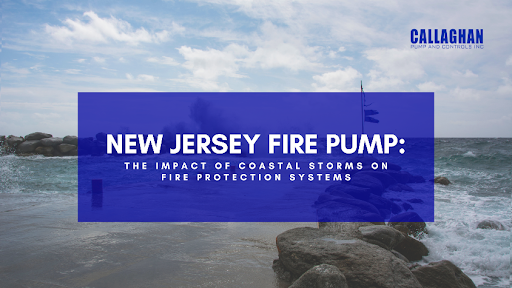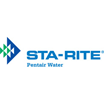
May 23rd, 2025
Coastal storms are a regular threat for much of New Jersey. With over 130 miles of shoreline, the state is no stranger to hurricanes, nor’easters, and flash0 floods. These weather events don’t just bring heavy rain and wind. They disrupt critical infrastructure, including fire protection systems. The risks are real for commercial buildings, industrial facilities, and residential complexes that rely on dependable fire suppression. This is where the reliability of New Jersey fire pump becomes more than just a matter of compliance. It becomes a matter of safety.
Storms can disrupt the fire protection systems when they’re needed the most. High winds, flooding, and power outages threaten electric NJ fire pumps and sprinklers. Knowing these risks helps ensure better preparedness.
Electric fire pumps depend on a consistent power supply. During a storm, grid failures are common. If backup generators aren’t functional or fail to kick in, the entire pump system may go down.
Without water pressure, sprinkler systems and standpipes won’t function properly. In high-risk areas, this isn’t just a technical glitch; it’s a safety hazard.
Flooding is another serious threat. Many NJ fire pump systems are installed below grade in basements or mechanical rooms. When floodwater enters these areas, pumps can be submerged. This results in motor damage, electrical malfunction, and long-term reliability problems. Saltwater makes things worse. It’s conductive and corrosive. If a storm surge brings ocean water to an installation, it can damage motors, controls, and piping systems, which can be severe or even irreparable. Residue can also wear out internal parts even after the water is pumped out.
New Jersey’s coastal environment already contributes to gradual corrosion. Add storm-driven salt spray and moisture, and the problem accelerates. Key components such as impellers, bearings, and seals suffer from early wear. If not inspected and maintained regularly, these parts may fail when the pump is needed most.
In many parts of New Jersey, storm activity has been linked to municipal water pressure drops. Fire pumps must work harder to reach the required output if the incoming supply is too weak. Over time, this stress can degrade performance and shorten the system’s service life.
Water supply lines may sometimes be contaminated or broken due to infrastructure damage. New Jersey fire pumps that rely on city water in such situations may not be suitable.
Installing a New Jersey fire pump in a coastal zone requires careful planning. Here are a few technical points property owners and engineers should keep in mind.
After a coastal storm hits, it’s important to inspect every element of the fire protection system and not just the fire pump. Moisture, corrosion, and debris can affect performance even without visible damage.
The following steps can help reduce the risk of a false sense of security:
At Callaghan Pump, we distribute New Jersey fire pump systems with a deep understanding of the region’s climate, infrastructure, and building codes. With more than 14 years of experience, we know the importance of getting the right fire pump and how a poorly chosen one can fail in high-stakes situations.
We also stay up-to-date with NFPA 20 standards and local AHJ (Authority Having Jurisdiction) requirements. This helps contractors and facility managers make informed decisions about pump selection, accessories, and maintenance plans.
Callaghan Pump continues to support customers across New Jersey by providing reliable fire pump products that meet the demands of coastal installations. Because when a storm hits, your NJ fire pump isn’t just another machine—it’s your last line of defense. If you need a high-functioning New Jersey fire pump, give us a call!
john@callaghanpump.com,
eileen@callaghanpump.com,
dan@callaghanpump.com,
sales@callaghanpump.com,
service@callaghanpump.com












